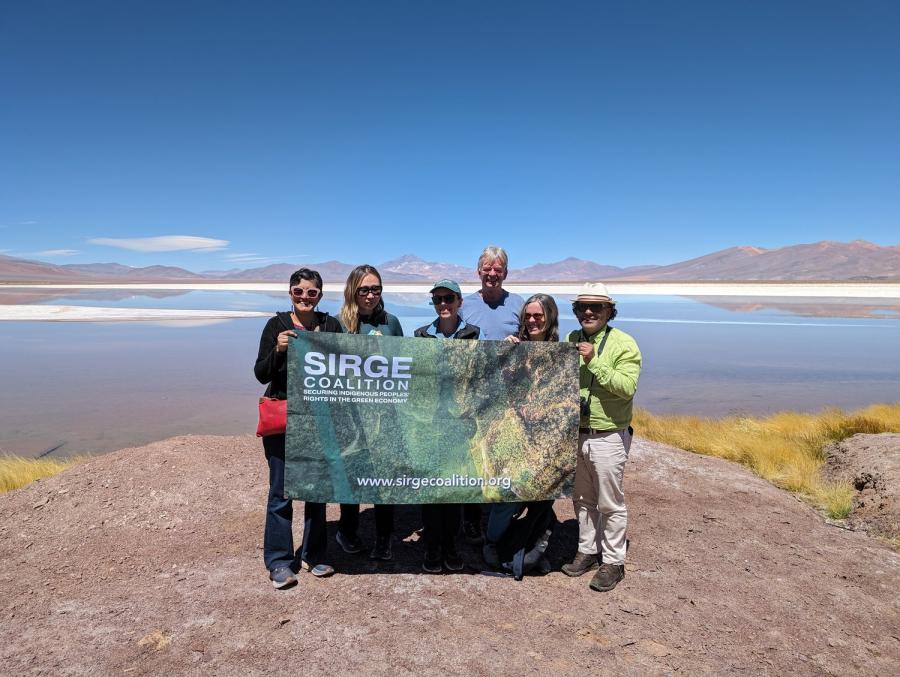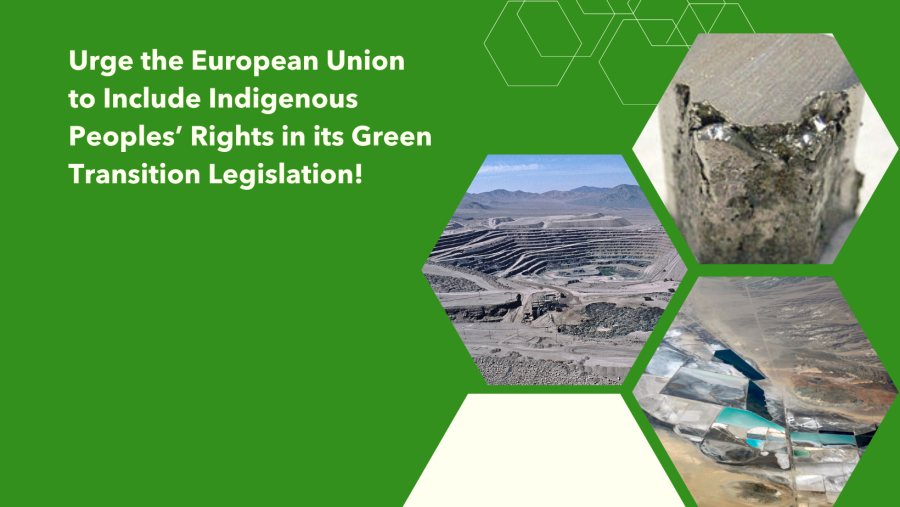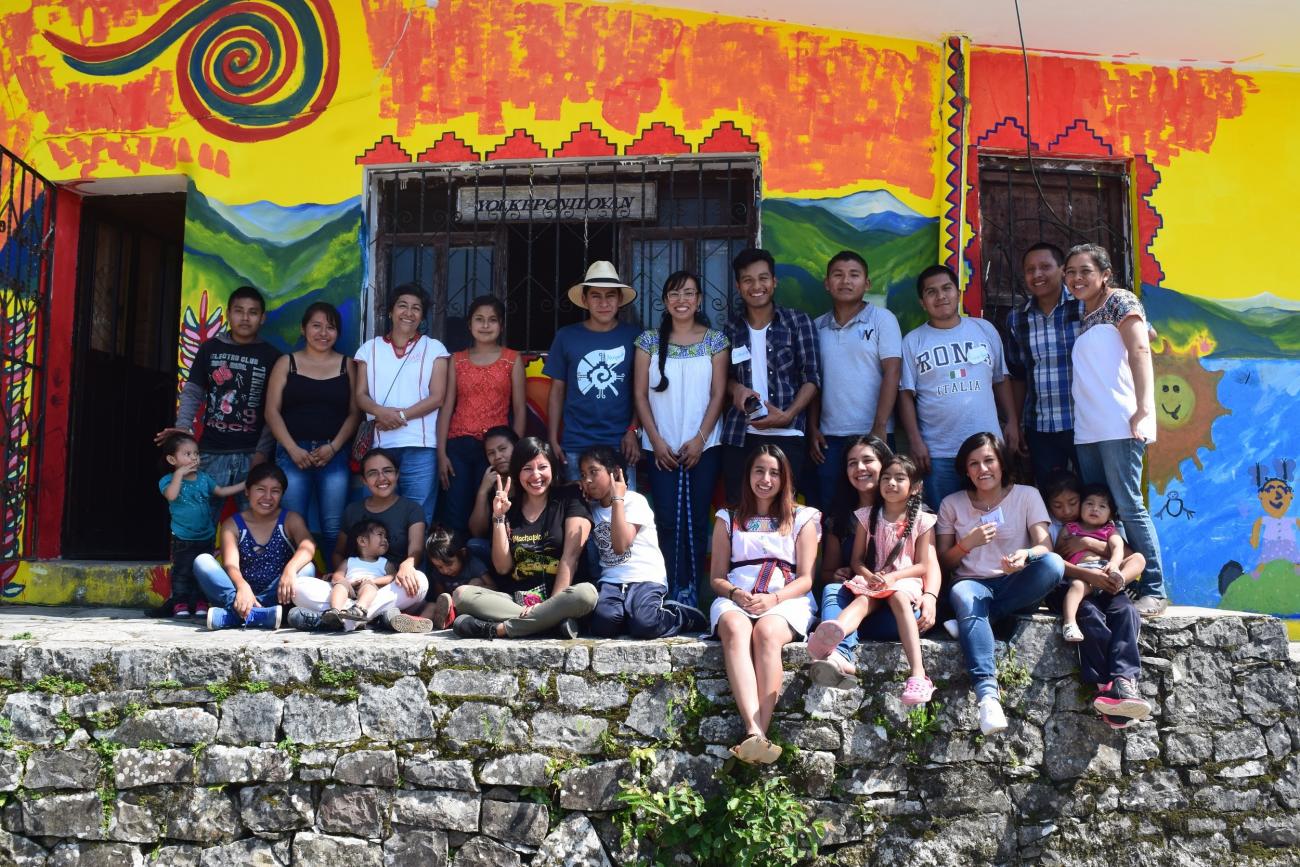
Cultural Survival's 2018 Indigenous Youth Community Media Fellows have been hard at work. The Fellowship Project supports young Indigenous leaders between the ages of 16-26 who are committed and eager to learn about technology, program development, journalism, community radio, media, and Indigenous Peoples’ rights advocacy. Capacity of the fellows is built through trainings, community radio station exchanges, and conference attendance. Here we share their experiences as fellows in their own words:
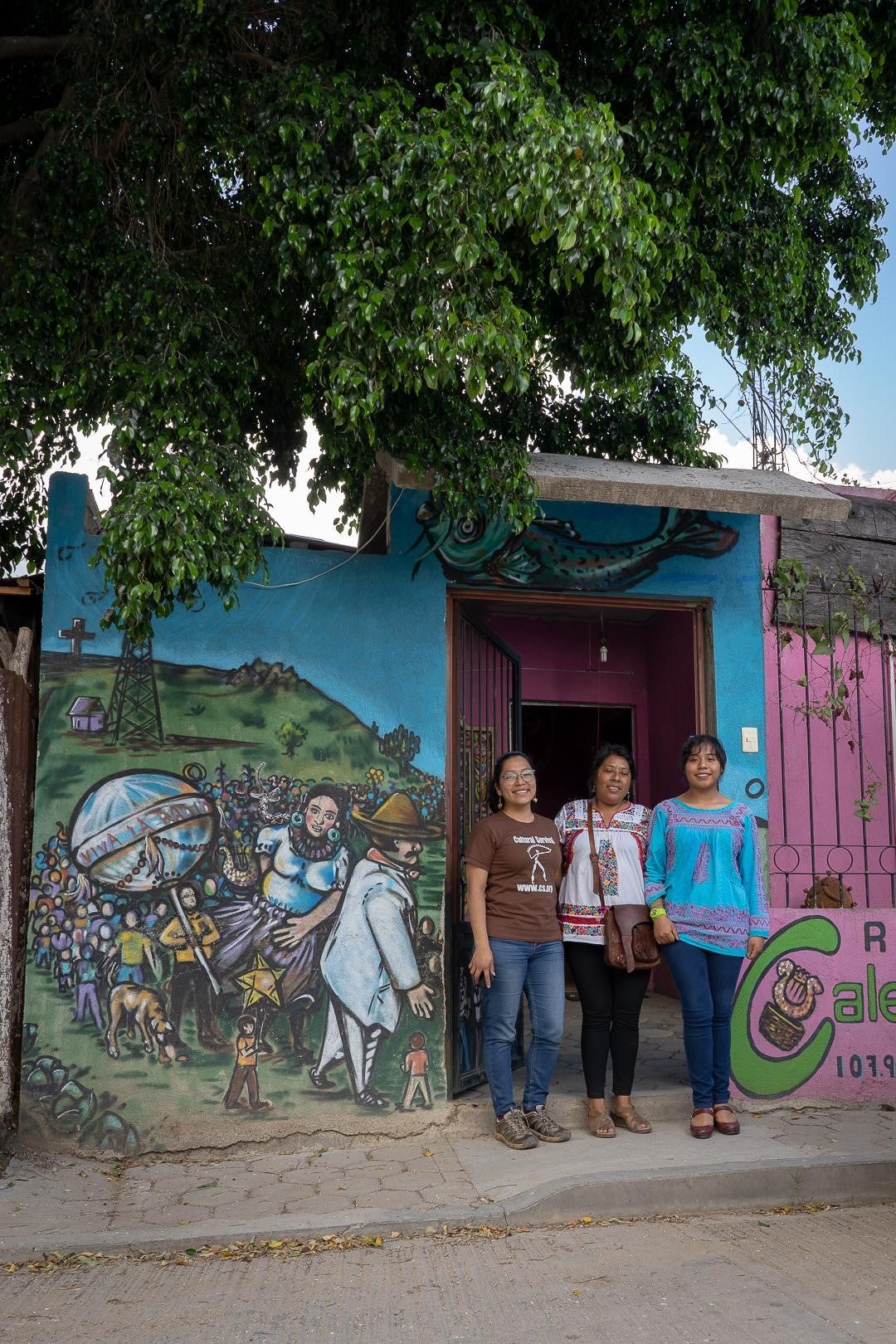
Zyania Roxana Santiago Aguilar (Zapotec) from Radio Calenda, La Voz de Valle in Oaxaca, México
Hello, my name is Zyania I am a former youth fellow of Cultural Survival. I want to share how the fellowship influenced my life. Community radio has been present in half of my life. I have participated and believed in the ideals media for all. However, something that is very common within our radio stations is the lack of income, which is a constant struggle. This limits those who want to delve deeper into this work. For this reason, I studied medicine, to have a source of income while continuing to work with radio.
Receiving this fellowship was an opportunity to broaden my perspective. I met wonderful people who immersed themselves in radio completely. I no longer felt alone. I had not met youth of my age before who were involved with community radio, and some are even living close to me. I knew then that I was not going to settle for less--radio was my life. Today, I am starting my studies in communication and digital media but this is also a challenge. In Mexico careers in the communications field have not received the necessary attention and it is an obsolete area in public universities.
Many people at community radio stations believe advancing with the pace of new communications causes us to lose value, but it is only those who are not clear about the purpose of their existence that do not appreciate how wonderful community work is and how urgently we need more tools to facilitate this work.
I believe that perhaps our value ends when we become apathetic to today's problems. We are sold the idea that in order to belong to an Indigenous community we must be artisans, poor and have an anti-government philosophy. It should not surprise us that few youth in Mexico take pride in being Indigenous. We have to abandon our origins to be able to integrate into the first world models. I dream of learning more, so that others take advantage of the media, to give voice and pride to my people, so that the youth in my town proudly say they are from San Antonino Castillo Velasco, a Zapotec town in Valle. We must stop pursuing copies of other countries, we must update the models and make them ours.
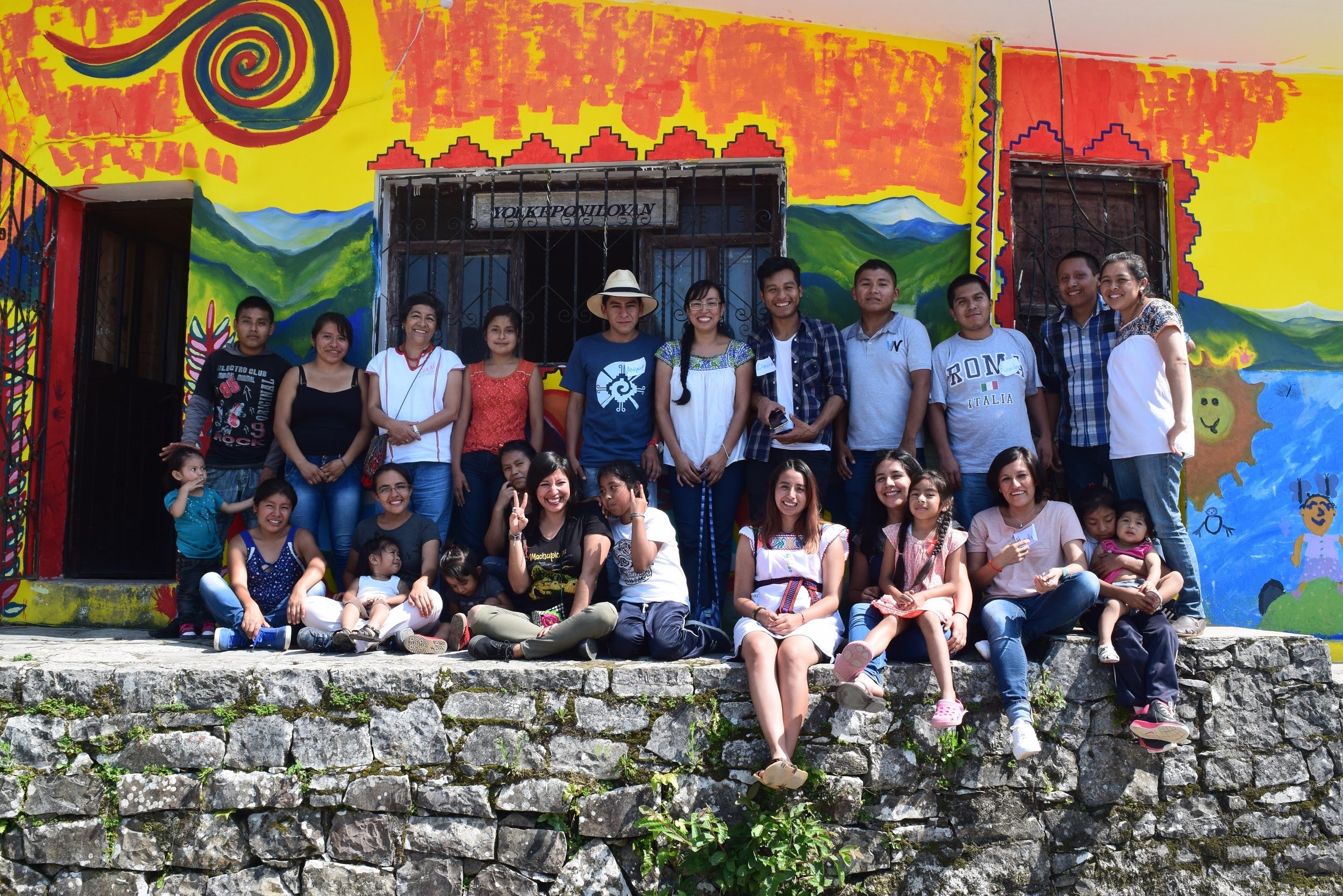
Ignacio Contreras Diego (Nahuatl) from Radio Tsinaka in Tzinacapan, Cuetzalan, México
My name is Ignacio Contreras Diego, I'm 22 years old and for the past five years I've been part of Radio Tsinaka in Tzinakapan, Cuetzalan, Puebla, Mexico. Our community radio station works to strengthen community knowledge, reflecting its traditional organizational structure.
As a fellow, I focused on the revitalization of the Nahuatl language in my community. In October 2018, a series of workshops was organized as part of the activities of the Indigenous Youth in Community Media and through the support of Indigenous Community Media Youth Fellowship and it was led by me. One of the key activities in the workshop was the development of a radio newsletter and the establishment of a web page for Radio Tsinaka. The fundamental objective of the web page was to create a platform for the radio to become more known abroad and to expand its reach. I held web workshops on open source software addressing the appropriation of programming.
Each one of the topics addressed in the workshop was fundamental in the creation of Radio Tsinaka’s website and all this was possible by members of Rancho Electronic who shared their knowledge on web page use and management.
Since the fellowship, the website has been officially launched and I continue to work as a producer at the station. The project has also generated favorable conditions for women after my workshop and new radio programs have been developed on the needs of Indigenous women in the community. Indigenous women were trained on accessing tools to utilize radio as a form of expression. From this process emerged the need to involve more women at the station.
The project itself is an indispensable part of a broader process. It is necessary to provide opportunities for community involvement. Youth are at the forefront of new technology and radio as a means of communication allows us to express ourselves and helps us unite as a community structure that characterizes us as a people.
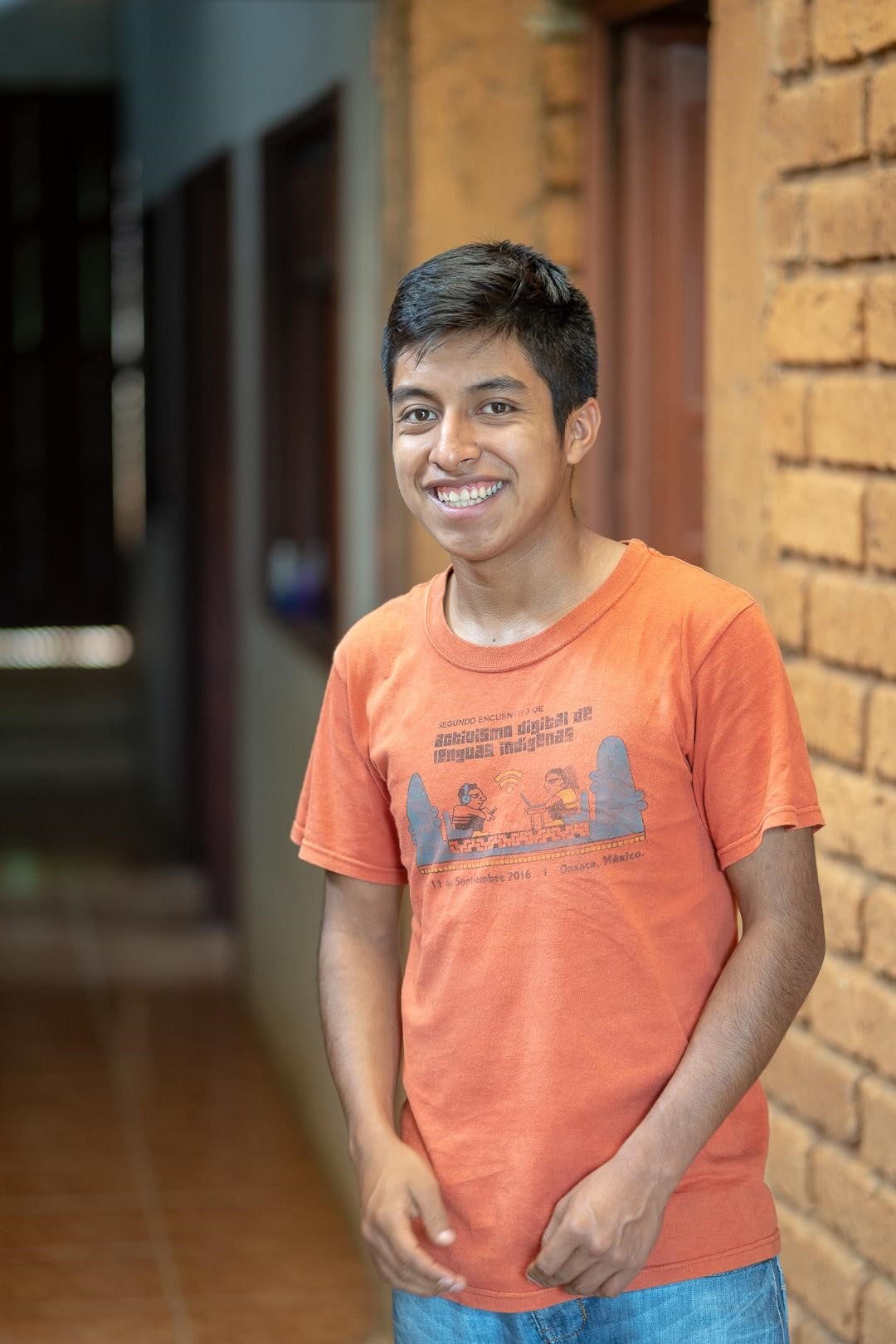
Joaquín Yescas Martínez (Zapoteco Xhidza) from Radio Bue Xhidza in Oaxaca, México
My name is Joaquín Yescas Martínez, I am 18 years old and have been volunteering at Radio Bue Xhidza Aire Zapoteco for over 10 years. The station is a non-profit, independent, autonomous, and self-managed community radio that promotes, serves, and defends the livelihood and sustainability of our people through social, cultural, informative, educational and traditional knowledge programs. I am an Indigenous digital activist.
My project focused on digital security. I wanted youth to be informed and have tools to defend themselves in this era of digital insecurity. I am the founder of the Pingüino Xhidza School that strengthens Zapoteco Xhidza language and culture through digital media. It is the first school to offer free software for children and youth to learn Zapoteco Xhidza.
My fellow project expanded the direction of the school and bridged alliances with linguists, hardware and software developers to organize a summer camp to share this knowledge and philosophy of free software, communality, and digital insecurity. I continue to advocate and facilitate these spaces for Indigenous children and youth to become educated and to be proud of being Zapoteco Xhidza. My next project is to establish an experimental laboratory for my community to access and learn more about technical mechanisms of electronic and radio equipment. This is a 7-year process and I hope to expand it to other states in Mexico.
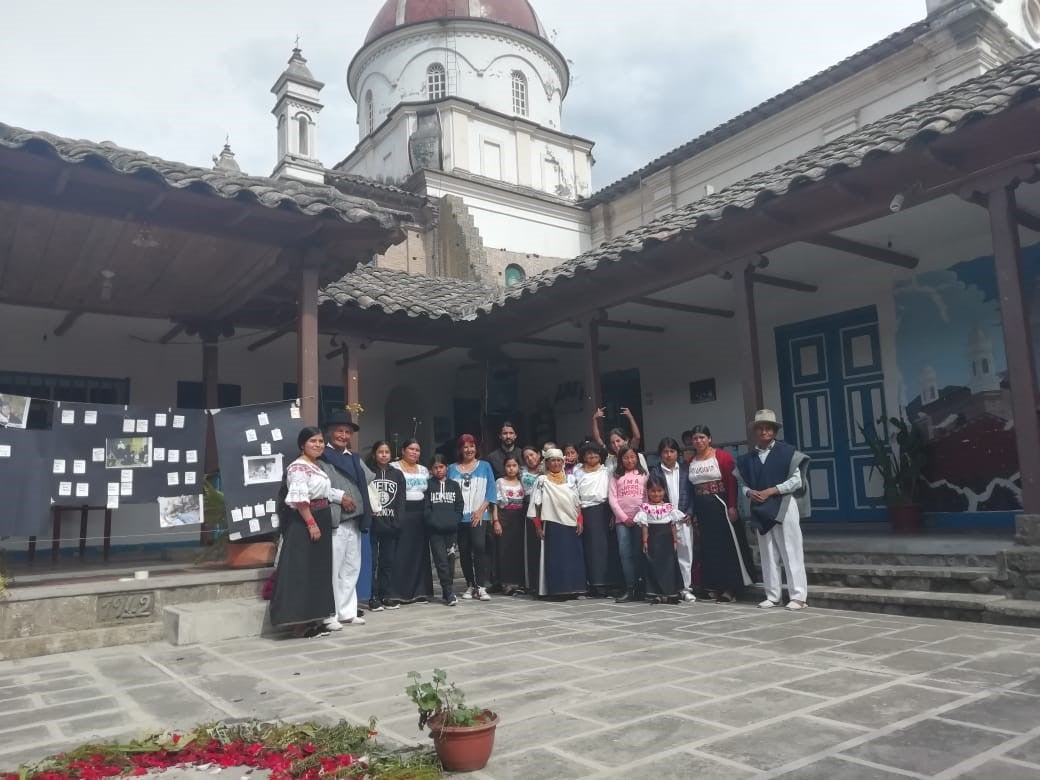
Ñusta Sánchez (Kichwa) from Radio Publica Cotacachi in Cotacachi, Ecuador
I am a 21-year-old Kichwa women from Santa Bárbara, Cotacachi, Ecuador. For my fellowship project I facilitated interviews with elders in my community about traditional arts, midwifery, and medicine. Using a theatre workshop format, I brought youth, children, and elders together and recorded their conversations. From the exchanges, for the first time radio programs were produced about the traditional practices and knowledge of the Kichwa people and aired on Radio Publica Cotacachi. I also personally delivered the final production of the programs developed from the workshops and interviews to the elders. I continue to generate intergenerational dialogues in Cotacachi and take part in a music group, Waruntzy. As a young Indigenous woman, I have a duty to continue recovering and strengthening my culture, my customs, my language, my traditional clothing, and reinforce them with other brothers and sisters.
Since the fellowship, I have continued to develop programs that strengthen the culture, identity and language of my people. I recently got accepted to the Regional Congress of Indigenous Languages in Latin America and Caribbean that will be taking place this year in Cusco, Peru. My dream to travel was made a reality during the fellowship and I am continuing to fulfill this dream.
